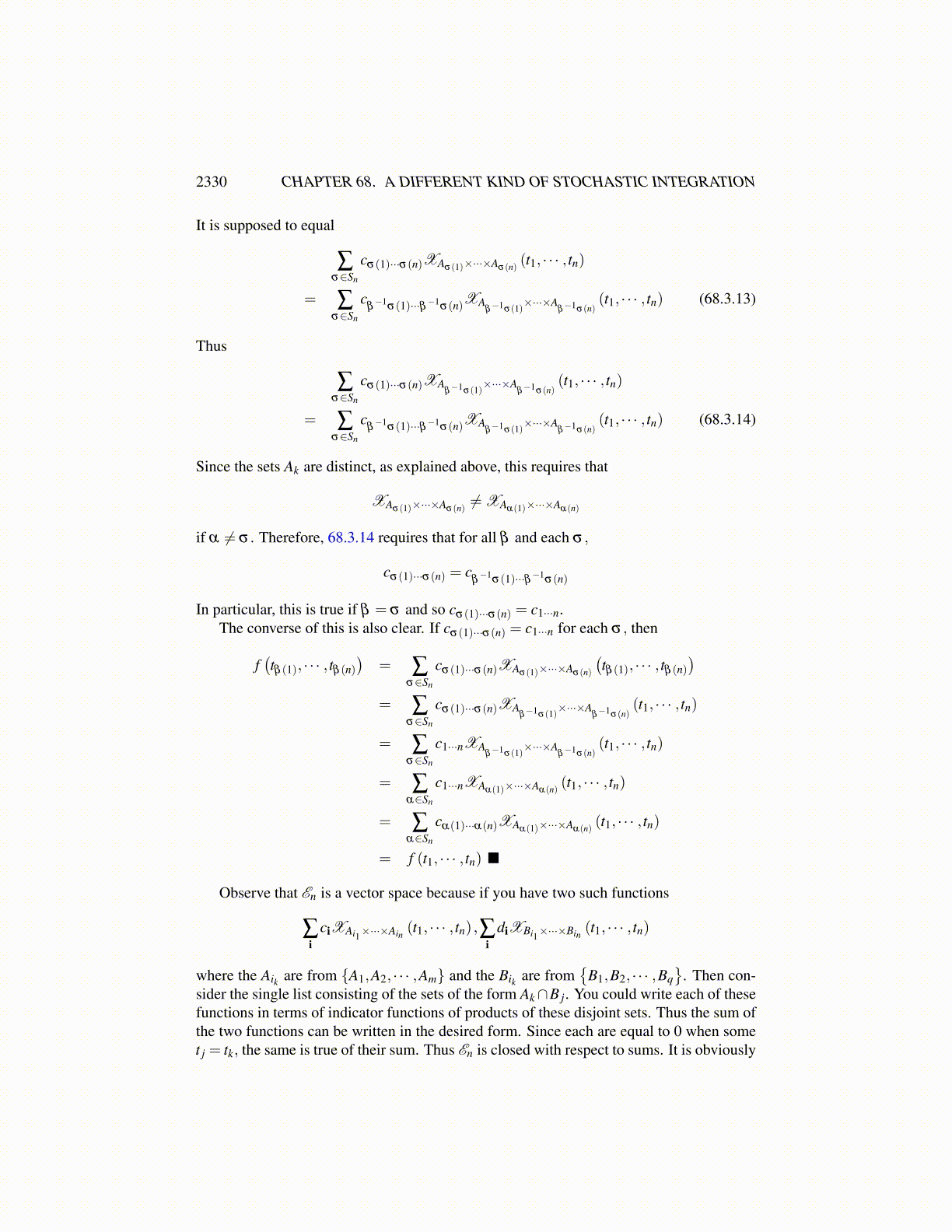
2330 CHAPTER 68. A DIFFERENT KIND OF STOCHASTIC INTEGRATION
hence if W (Ai∩B j) ̸= 0, then, since these sets are disjoint, ci−d j = 0. It follows that
∑i, j(ci−d j)W (Ai∩B j) = 0
and so
∑i
ciW (Ai) = ∑i
∑j
ciW (Ai∩B j) = ∑j∑
id jW (Ai∩B j) = ∑
jd jW (B j)
This proves the theorem if n = 1. Consider the general case. Let i′ be
(i1, · · · , in−1) , ik ≤ mm
∑in=1
∑i′
c(i′,in)XAin(tn)XAi1×···×Ain−1
= ∑i
ciXAi1×···×Ain
= ∑j
djXB j1×···×B jn=
m
∑jn=1
∑j′
d(j′, jn)XB jn(tn)XB j1×···×B jn−1
Now pick (t1, · · · , tn−1) . The above is then
m
∑in=1
(∑i′
c(i′,in)XAi1×···×Ain−1(t1, · · · , tn−1)
)XAin
(tn)
=m
∑jn=1
(∑j′
d(j′, jn)XB j1×···×B jn−1(t1, · · · , tn−1)
)XB jn
(tn)
and by what was just shown for n = 1, for each such choice,
∑in
(∑i′
c(i′,in)XAi1×···×Ain−1
)W (Ain)
= ∑jn
(∑j′
d(j′, jn)XB j1×···×B jn−1
)W (B jn)
Then
∑i′
function of ω︷ ︸︸ ︷
∑in
W (Ain)c(i′,in)
not a function of ω︷ ︸︸ ︷XAi1×···×Ain−1
=
∑j′
(∑jn
W (B jn)d(j′, jn)
)XB j1×···×B jn−1
Pick ω = ω0. Then by induction,
∑i′
(∑in
W (Ain)(ω0)c(i′,in)
)W (Ai1) · · ·W
(Ain−1
)= ∑
j′
(∑jn
W (B jn)(ω0)d(j′, jn)
)W (B j1) · · ·W
(B jn−1
)